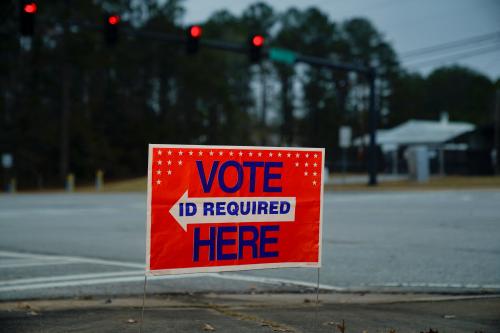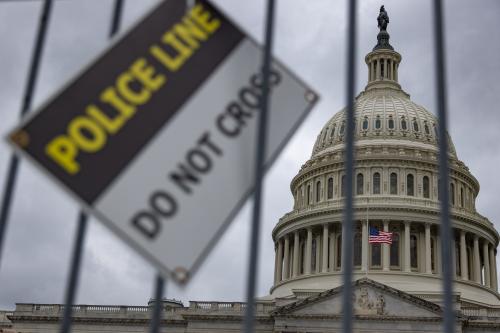The terrorist attacks on September 11, which caused plane crashes in New York, Pennsylvania, and Washington, D.C., resulted in thousands of deaths, billions of dollars in damage, and an American public that was stunned by the events it had watched unfold on television. In addition to the heavy emotional toll, federal, state, and local governments scrambled to address new policy problems, including massive clean-up efforts, compensation for victims, and homeland security.
How did Congress address the immediate crisis and move forward in the days and months that followed? How will the events of September 11 continue to influence the congressional agenda in the second session? The Brookings Institution asked two of its scholars—congressional expert Sarah Binder and former Congressman Bill Frenzel—to discuss how the 107th Congress dealt with the effects of the attacks in the days immediately following September 11, how lawmakers balanced the emergency with other pending legislation, and what the public can expect from Congress in the first months of the second session.



